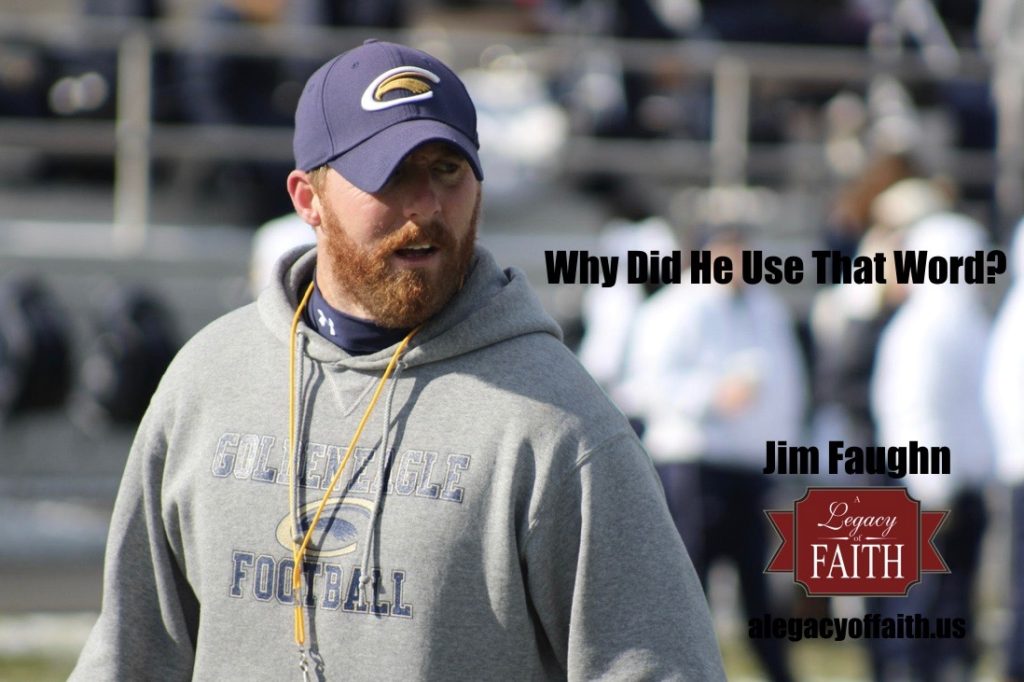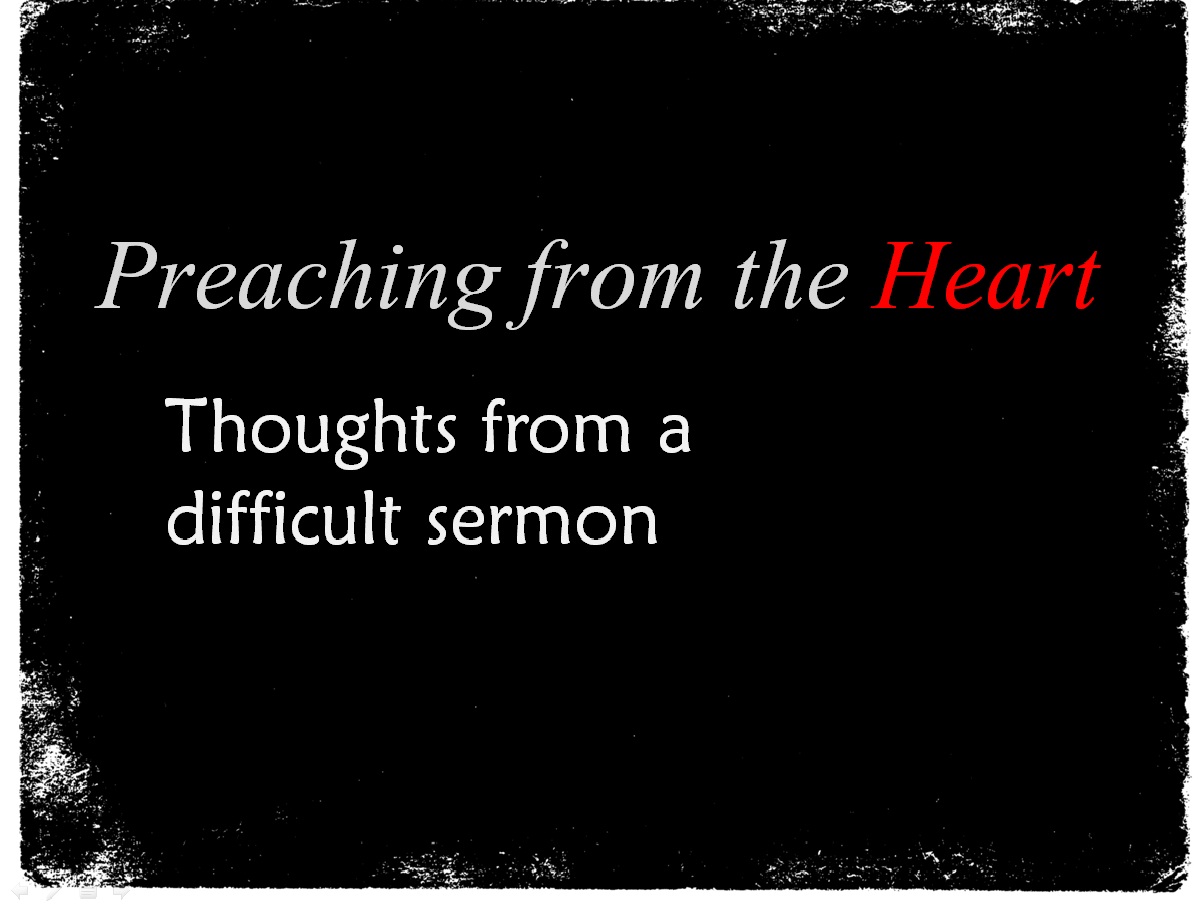Why Did He Use That Word?

It was an important college football game. The winner of this particular game would play for the national championship. One would think that every imaginable detail would have been addressed by coaches and players and that there would be no room for what some call a “bonehead” incident.
However, such an incident did, indeed, occur. Somehow there was enough confusion to cause the team with the ball to take too long between plays.
The referee threw the flag. He made the appropriate signal. He turned his microphone on and announced what everybody already knew. The penalty was for “delay of game.”
The head coach was not happy. That was to be expected. What was not expected (at least by me) was what he said as he approached his team.
I am not at all a trained lip reader. Sometimes, though, I can read the lips of coaches, managers, etc. as I’m watching a game. There are times when I wish I was not quite so good at this. This was one of those times.
Because of some of the language used by the coach on this occasion, I will provide here only the shorter and sanitized version of what he said as he walked on the field to face his players:
“What is the matter with us?”
I found the pronoun that he chose to use to be very interesting. He did not point his finger at the quarterback and ask, “What is the matter with you?” He did not stare at the entire offensive unit and demand to know “What is the matter with all of you?”
He may not have even thought about the implications of using “us” instead of “you” when he stormed onto the field. I’ve been doing a lot of thinking about some of those implications, though.
Whether he intended it or not, the use of that one little two-letter word spread the blame to the entire football program. It even included the head coach who was demanding to know what was wrong. That one word seemed to be saying things like:
- We are better than this.
- People expect more from us than this.
- We have a reputation to uphold.
- A mistake by any of us has an impact on all of us.
- We will never be all that we can be until and unless we learn to do better.
- No one person or group is responsible for our successes and no one person or group is responsible for our failures. We are in this together.
I think I may have learned a valuable life lesson while watching a coach who was not at all happy with how his team was doing at the moment. In ways that are somewhat similar to his experience, things don’t always go the way I would like for them to go or think that they should go during every moment of my life. During those times, I’m thinking that I need to not be so quick about pointing my finger at others. I may need to look at the larger picture and try to assess what could be improved by everybody involved and for everybody involved.
There may be one more thing to consider. Who was the man who asked the question? Is he not the same man who is held accountable for the success or failure of the entire football program? Do you think that his use of “us” could have caused him (or others) to think that at least some of this
It could very well be that, when my life, my relationships, my job, etc. are not going “according to my plans,” the question I might need to ask myself is –
What is the matter with me?
To Receive Every Article from A Legacy of Faith through Email for Free, Click Here
AUTHOR: Jim Faughn


